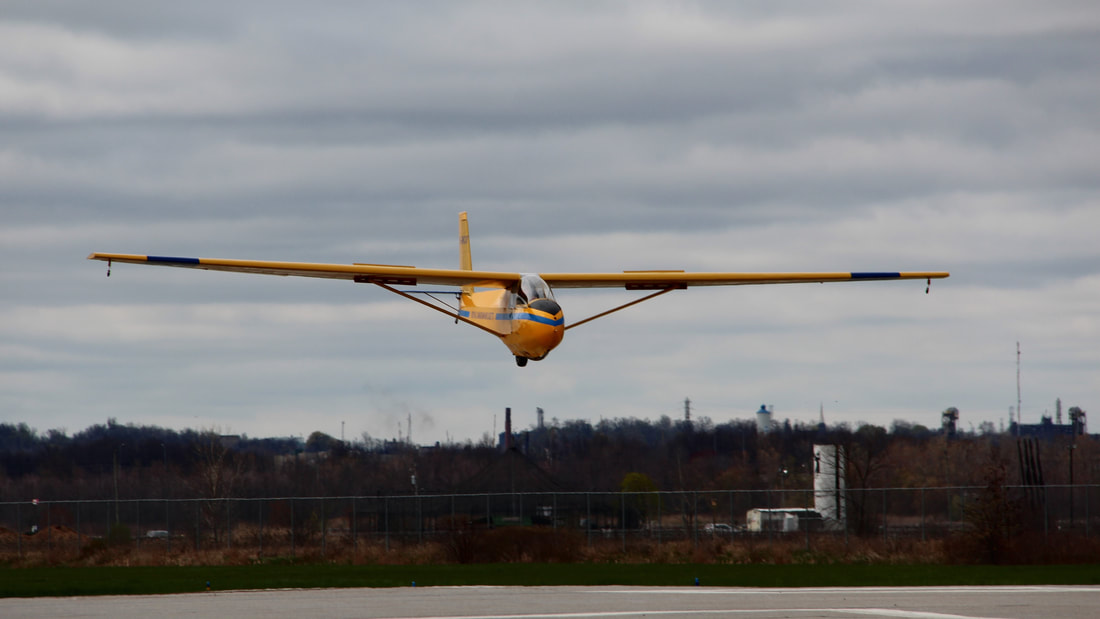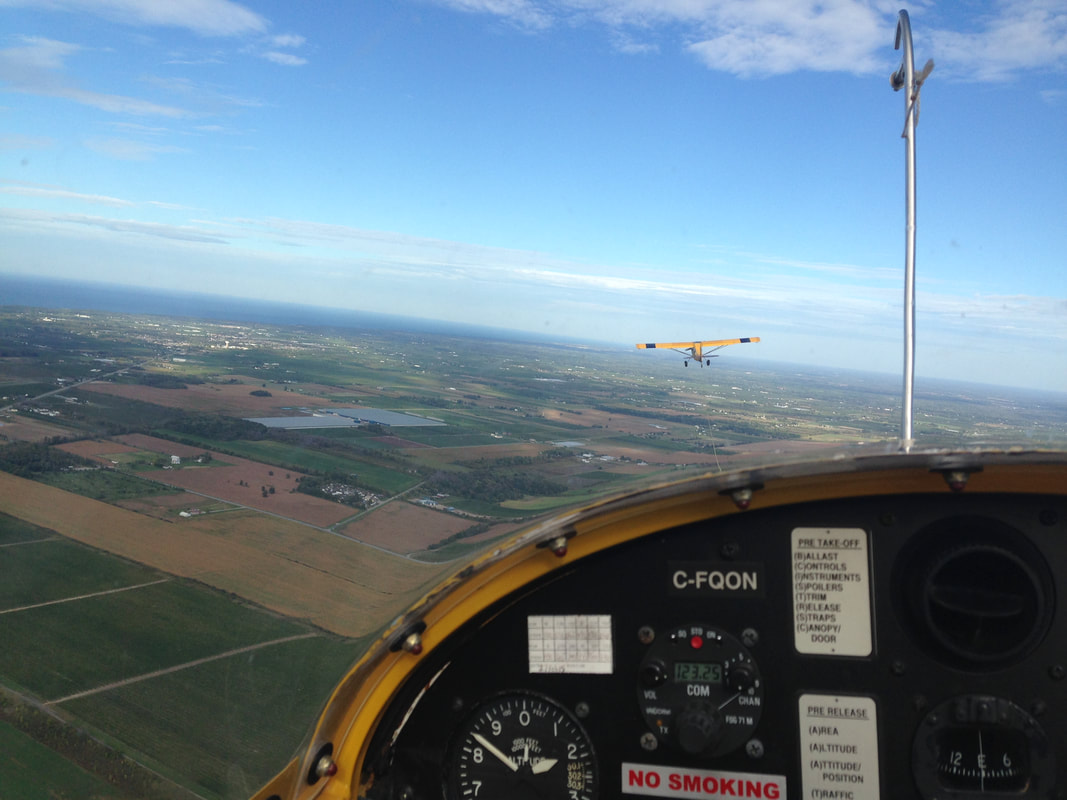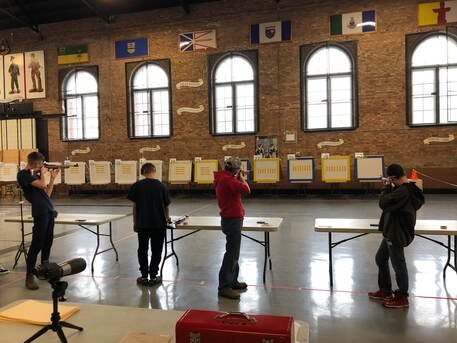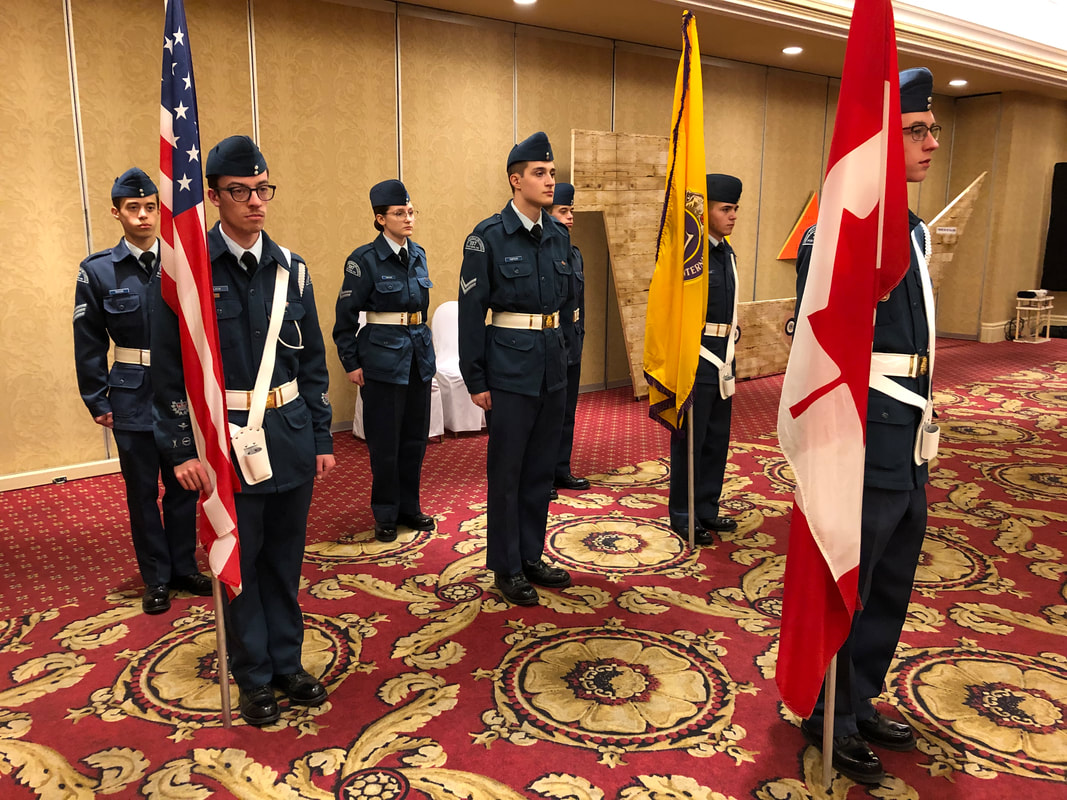Joining the Air Cadet Program provides many unique opportunities, including the chance to fly!
Flying
On occasion, the opportunity to fly in civilian or military powered aircraft may be offered to cadets. In the past, Squadrons with staff members who are pilots have been able to rent local aircraft and receive approval to provide familiarization flights. These flights provide real-life examples of and highlight the principles of flight and other aviation subjects taught throughout the air cadet training programs. Cadets who attend summer training at a Canadian Forces Base with Royal Canadian Air Force flying units may also be offered the chance to fly in a military cargo or passenger aircraft.
On occasion, the opportunity to fly in civilian or military powered aircraft may be offered to cadets. In the past, Squadrons with staff members who are pilots have been able to rent local aircraft and receive approval to provide familiarization flights. These flights provide real-life examples of and highlight the principles of flight and other aviation subjects taught throughout the air cadet training programs. Cadets who attend summer training at a Canadian Forces Base with Royal Canadian Air Force flying units may also be offered the chance to fly in a military cargo or passenger aircraft.
|
Gliding and Flying Scholarships
Each summer, cadets from squadrons across Canada are selected to attend training and receive a Transport Canada Glider or Private Pilot’s License. The Air Cadet Gliding Scholarship Program is the largest producer of glider pilots in the country, annually awarding approximately 320 glider pilot licenses. The Air Cadet Flying Scholarship Program is held at select civilian flight training schools across the country. Many cadets who have attended the scholarship courses have one on to great flying careers in the military or at civilian airlines, and many still fly just for fun. A large number of the instructors, pilots and supervisors of the cadet flying programs also went through the programs themselves. |
Adventurous Training
Adventurous training is an integral part of the Air Cadet training program and offers cadets the opportunity to participate in unique activities while developing their leadership and team building skills. Whether it’s survival training, canoeing, map and compass, GPS navigation, archery, or camp craft, these activities typically happen at public facilities, like conservation areas near our local training locations and are referred to as Field Training Exercises. In some areas, squadrons that are close to each other will join together to have larger training weekends allowing cadets to meet and share experiences with members of other squadrons.
Adventurous training is an integral part of the Air Cadet training program and offers cadets the opportunity to participate in unique activities while developing their leadership and team building skills. Whether it’s survival training, canoeing, map and compass, GPS navigation, archery, or camp craft, these activities typically happen at public facilities, like conservation areas near our local training locations and are referred to as Field Training Exercises. In some areas, squadrons that are close to each other will join together to have larger training weekends allowing cadets to meet and share experiences with members of other squadrons.
|
Marksmanship
Marksmanship has a long history in the cadet program and is a popular activity among all levels of cadets. Range programs consist of cadets learning safe handling, maintenance, terminology, aiming and shooting techniques and proper commands. Air cadets in Canada use the Daisy 853C air rifle and fire on grouping, competition and biathlon targets from a distance of 10 meters. Shooting occurs on a regular basis at the local training facility and those who are selected for the range team move on to competitions and the zone and regional level. |
Sports and Fitness
One of the aims of the Air Cadets is to promote physical fitness, and promote it we do. Whether it is monthly sports nights, the chance to participate in the Niagara Air Group sports competition, or the options to participate in regional activities such as orienteering, or biathlon, there are many opportunities to stay active and fit in the cadet program. Sports that are practiced and typically played at the competition include European handball, indoor soccer, volleyball and basketball. We also make use of local facilities to play ball hockey, go swimming or even ice skating.
One of the aims of the Air Cadets is to promote physical fitness, and promote it we do. Whether it is monthly sports nights, the chance to participate in the Niagara Air Group sports competition, or the options to participate in regional activities such as orienteering, or biathlon, there are many opportunities to stay active and fit in the cadet program. Sports that are practiced and typically played at the competition include European handball, indoor soccer, volleyball and basketball. We also make use of local facilities to play ball hockey, go swimming or even ice skating.
|
Drill and Ceremonial
Drill is a great way to develop and practice team work. It also shows how disciplined and organized you can be as an individual and as a member of a team. Drill is also a way of displaying the high standard of dress and deportment that is expected of cadets. Drill is used to gather and move large groups of cadets around in a neat and orderly fashion. Whatever the reason, drill is an impressive sight to see and can take many forms. Air Cadets regularly participate in basic drill and have the opportunity to learn advanced drill such as flag drill and rifle drill. |
Music
Music plays a large role in a number of cadet activities, whether it be a parade, or a ceremony, or a celebration, most formal cadet functions require music accompaniment. The cadet program gives cadets the opportunity to learn or expand their knowledge of music in a variety of ways. Local squadrons may have their own band and cadets can participate in regional band clinics, play in local parades, and provide music for end of the year ceremonies. Cadets also have the opportunity to apply for music courses at summer training centres where they will upgrade their skills or even learn a new instrument. Instruments typically available include: snare drum, bass drum, cymbals, trumpet, saxophone, glockenspiel, flute, and clarinet. One lucky cadet is also selected to lead the band as the drum major.
Music plays a large role in a number of cadet activities, whether it be a parade, or a ceremony, or a celebration, most formal cadet functions require music accompaniment. The cadet program gives cadets the opportunity to learn or expand their knowledge of music in a variety of ways. Local squadrons may have their own band and cadets can participate in regional band clinics, play in local parades, and provide music for end of the year ceremonies. Cadets also have the opportunity to apply for music courses at summer training centres where they will upgrade their skills or even learn a new instrument. Instruments typically available include: snare drum, bass drum, cymbals, trumpet, saxophone, glockenspiel, flute, and clarinet. One lucky cadet is also selected to lead the band as the drum major.
Summer Training
Each summer, thousands of cadets from across Canada attend summer training courses in their local communities and at various Canadian Forces Bases. Courses available to cadets include the Cadet Activities Program, Music, Survival, Sports and Fitness, Drill and Ceremonial, Aviation Technology, Aerospace, and the Gliding & Flying Training Programs. Cadets who have previous experience can even apply to be employed at a training centre to act as a cadet instructor. Attending a summer training course allows cadets to expand their knowledge of topics taught at the local squadron, or learn new information that they will be able to teach to other cadets.
Each summer, thousands of cadets from across Canada attend summer training courses in their local communities and at various Canadian Forces Bases. Courses available to cadets include the Cadet Activities Program, Music, Survival, Sports and Fitness, Drill and Ceremonial, Aviation Technology, Aerospace, and the Gliding & Flying Training Programs. Cadets who have previous experience can even apply to be employed at a training centre to act as a cadet instructor. Attending a summer training course allows cadets to expand their knowledge of topics taught at the local squadron, or learn new information that they will be able to teach to other cadets.




